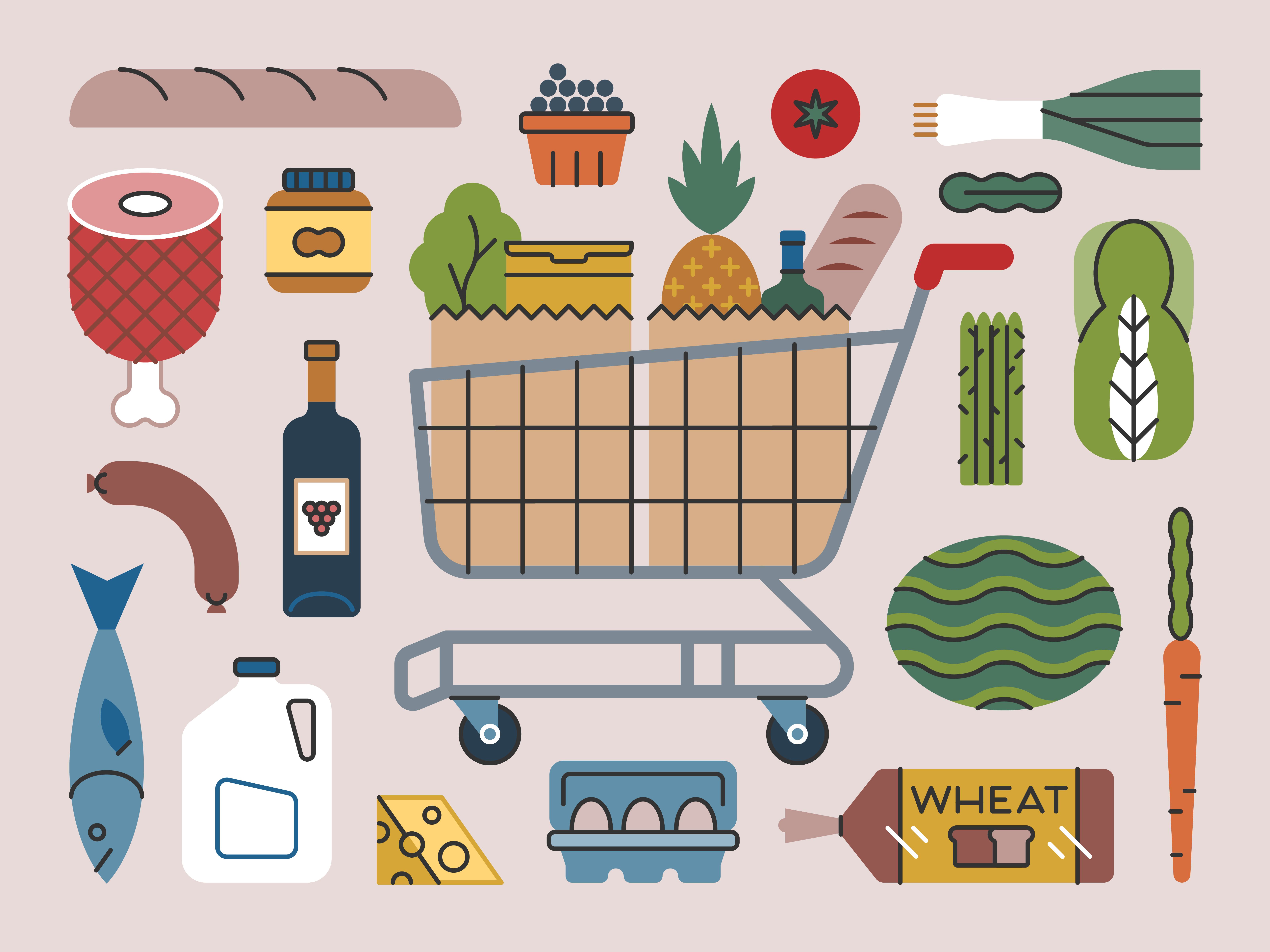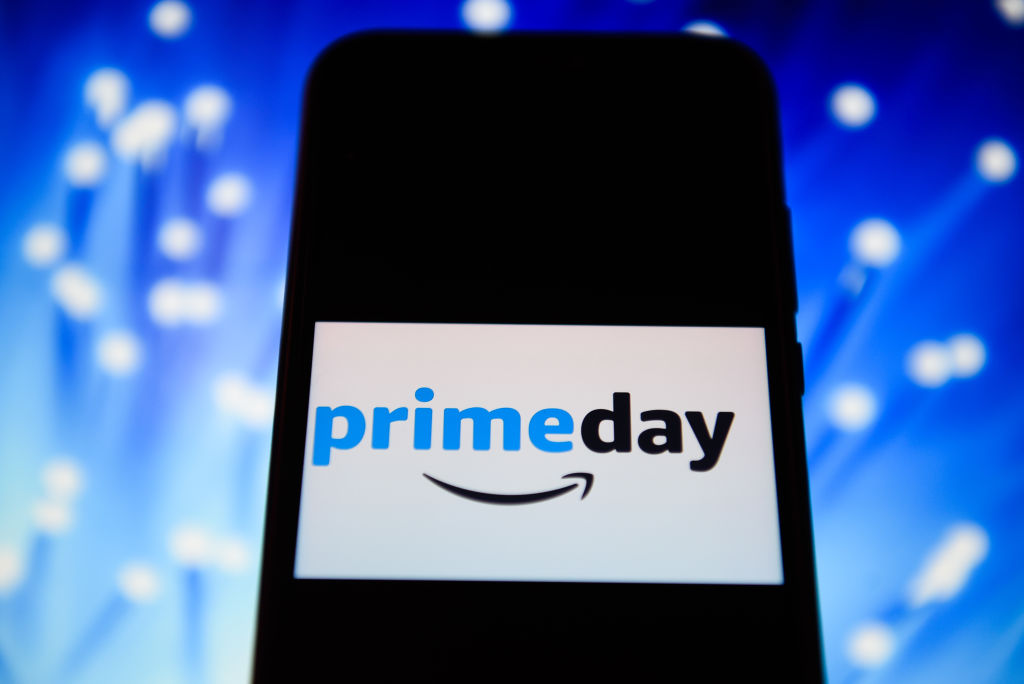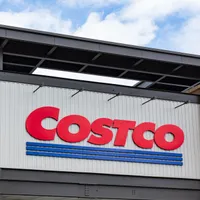Good Places to Buy Organic Foods Without Breaking the Bank
Inflation has driven grocery bills up, and for people who want to shop organic, these places can help your wallet.


Profit and prosper with the best of Kiplinger's advice on investing, taxes, retirement, personal finance and much more. Delivered daily. Enter your email in the box and click Sign Me Up.
You are now subscribed
Your newsletter sign-up was successful
Want to add more newsletters?

Delivered daily
Kiplinger Today
Profit and prosper with the best of Kiplinger's advice on investing, taxes, retirement, personal finance and much more delivered daily. Smart money moves start here.

Sent five days a week
Kiplinger A Step Ahead
Get practical help to make better financial decisions in your everyday life, from spending to savings on top deals.

Delivered daily
Kiplinger Closing Bell
Get today's biggest financial and investing headlines delivered to your inbox every day the U.S. stock market is open.

Sent twice a week
Kiplinger Adviser Intel
Financial pros across the country share best practices and fresh tactics to preserve and grow your wealth.

Delivered weekly
Kiplinger Tax Tips
Trim your federal and state tax bills with practical tax-planning and tax-cutting strategies.

Sent twice a week
Kiplinger Retirement Tips
Your twice-a-week guide to planning and enjoying a financially secure and richly rewarding retirement

Sent bimonthly.
Kiplinger Adviser Angle
Insights for advisers, wealth managers and other financial professionals.

Sent twice a week
Kiplinger Investing Weekly
Your twice-a-week roundup of promising stocks, funds, companies and industries you should consider, ones you should avoid, and why.

Sent weekly for six weeks
Kiplinger Invest for Retirement
Your step-by-step six-part series on how to invest for retirement, from devising a successful strategy to exactly which investments to choose.
Mention organic food to most shoppers and they’ll likely respond that it’s too expensive. For the most part, they’d be right. Because of high inflation, food prices for non-organic foods increased 9.9% in the last year, and the price for organic foods went up even more.
A recent study from Lending Tree, based on retail pricing data from the U.S. Department of Agriculture (USDA) found that prices for organic fruits and vegetables rose 13.1% over the last year. Price increases varied among specific foods, with organic strawberries going from $3.08 a pound to $9.99 — a 224.4% increase.
So what do you do if you want to buy organic for less? Saving money on organic foods doesn't just come down to what you buy, but where you buy it. Try shopping at these places to keep costs down, noting that you should price compare on specific items, as some products cost less elsewhere.
From just $107.88 $24.99 for Kiplinger Personal Finance
Become a smarter, better informed investor. Subscribe from just $107.88 $24.99, plus get up to 4 Special Issues

Sign up for Kiplinger’s Free Newsletters
Profit and prosper with the best of expert advice on investing, taxes, retirement, personal finance and more - straight to your e-mail.
Profit and prosper with the best of expert advice - straight to your e-mail.
Trader Joe’s. This quirky grocery chain, with more than 500 locations across the U.S., is known for its low prices. Many of its organic offerings are bargains compared with similar products at supermarkets and organic grocers. Fruits and vegetables, beef, yogurt and coffee are among its top organic deals.
For example, we found that a 5-ounce package of organic spinach & spring mix was $1 less at Trader Joe’s than at several supermarkets we checked. Learn more about the secrets to shopping at Trader Joe's.
Aldi. This low-cost supermarket chain originated in Germany and now operates over 2,000 locations in the U.S. Aldi keeps its prices low because of its no-frills approach – you have to bag your own groceries, for example – and its lineup of exclusive brands.
The organic selection isn’t extensive, but the items that are available tend to be priced lower than similar products at supermarkets and Whole Foods. For example, a 24-ounce jar of organic marinara sauce at Aldi’s is between 50 cents and more than $1 less than similar sauces at other grocers we checked.
Walmart. Yes, Walmart. The mega-retailer has used its size and scale to make organic affordable, Walmart spokesperson Molly Blakeman said in 2015. “We don’t think people should have to pay more to put organic on the table.” Walmart stocks over 1,000 organic grocery items, including in the Great Value line. A 51-ounce bottle of organic extra virgin olive oil costs close to $10.
Warehouse clubs. You’ll pay $50 or more a year to join a warehouse club such as Costco, BJ’s or Sam’s Club. But you can recoup the annual fee with the savings you’ll get by buying warehouse clubs' discounted bulk items, especially organic fare.
For example, BJ’s organic chicken breasts are about $1 less per pound than at the other stores we checked; a 36-ounce jar of organic peanut butter costs under $10. BJ’s carries dozens of organic items, and both BJ's and Sam's Club offer free one-day passes if you want to check out the organic offerings before committing to a membership (there are surcharges for non-members, though).
It is worth noting that to take full advantage of warehouse clubs’ discount pricing, you need to be able to consume the entire amount of your bulk purchases before those items spoil or expire. See 7 Costly Mistakes Shoppers Make at Warehouse Clubs for more.
Stack Social is offering a Gold Star Membership + $20 Digital Shop Card for the price of a $65 Gold Star membership.
It is also offering an Executive Gold Star Membership + $40 Shop Card for the price of a $130 Executive Gold Star membership.
Farmers markets. Because prices can vary greatly from market to market and even vendor to vendor at the same market, it’s hard to claim that this option is one of the best places across the board to buy organic on a budget. Plus, although you might find an abundance of naturally grown or raised produce, you likely won’t find many — or any — items that are actually certified organic, which requires meeting requirements set by the U.S. Department of Agriculture.
Nonetheless, it’s worth doing some comparison shopping of your own at your local farmers market to see how its prices stack up. There’s a good chance you’ll find that it won’t cost you more than shopping at the supermarket – and might cost even less if you follow these tips for saving money at farmers markets.
The bottom line
While organic food can be pricey, smart shopping strategies can help you save. Comparing prices across different retailers — whether it’s Trader Joe’s, Aldi, Walmart, warehouse clubs or local farmers markets — can make a big difference.
By being flexible with where you shop and taking advantage of bulk deals, store brands and seasonal produce, you can enjoy organic foods without overspending.
RELATED CONTENT
Profit and prosper with the best of Kiplinger's advice on investing, taxes, retirement, personal finance and much more. Delivered daily. Enter your email in the box and click Sign Me Up.

Award-winning journalist, speaker, family finance expert, and author of Mom and Dad, We Need to Talk.
Cameron Huddleston wrote the daily "Kip Tips" column for Kiplinger.com. She joined Kiplinger in 2001 after graduating from American University with an MA in economic journalism.
-
 Nasdaq Leads a Rocky Risk-On Rally: Stock Market Today
Nasdaq Leads a Rocky Risk-On Rally: Stock Market TodayPresident Trump said he will decide within the next 10 days whether or not the U.S. will launch military strikes against Iran.
-
 Over 65? Here's What the New $6K Senior Tax Deduction Means for Medicare IRMAA
Over 65? Here's What the New $6K Senior Tax Deduction Means for Medicare IRMAATax Breaks A new tax deduction for people over age 65 has some thinking about Medicare premiums and MAGI strategy.
-
 U.S. Congress to End Emergency Tax Bill Over $6,000 Senior Deduction and Tip, Overtime Tax Breaks in D.C.
U.S. Congress to End Emergency Tax Bill Over $6,000 Senior Deduction and Tip, Overtime Tax Breaks in D.C.Tax Law Here's how taxpayers can amend their already-filed income tax returns amid a potentially looming legal battle on Capitol Hill.
-
 21 Last-Minute Gifts for Grandparents Day 2025 to Give Right Now
21 Last-Minute Gifts for Grandparents Day 2025 to Give Right NowHoliday Tips Last-minute gifting is never easy. But here are some ideas to celebrate Grandparents Day.
-
 Texas Sales Tax-Free Weekend 2025
Texas Sales Tax-Free Weekend 2025Tax Holiday Here's what you needed to know about the Texas sales tax holiday.
-
 Alabama Tax-Free Weekend 2025
Alabama Tax-Free Weekend 2025Tax Holiday Here’s everything you need to know about the 2025 back-to-school Alabama sales tax holiday.
-
 Don't Let High Taxes Break Your Heart This Valentine’s Day
Don't Let High Taxes Break Your Heart This Valentine’s DayState Taxes We’ve mapped out the best states where your box of chocolates comes without a side of sales tax.
-
 Florida Back-to-School Tax-Free Holiday 2025
Florida Back-to-School Tax-Free Holiday 2025Sales Taxes The new tax-free holiday in Florida brought month-long savings on computers, clothing and other school supplies.
-
 Five Reasons You Shouldn't Shop Amazon's Prime Big Deal Days
Five Reasons You Shouldn't Shop Amazon's Prime Big Deal DaysSmart Buying Are Amazon Prime Big Deal Days still a good deal? We'll break it down.
-
 Five Ways to Save on Vacation Rental Properties
Five Ways to Save on Vacation Rental PropertiesTravel Use these strategies to pay less for an apartment, condo or house when you travel.
-
 How to Avoid Annoying Hotel Fees: Per Person, Parking and More
How to Avoid Annoying Hotel Fees: Per Person, Parking and MoreTravel Here's how to avoid extra charges and make sure you don't get stuck paying for amenities that you don't use.
